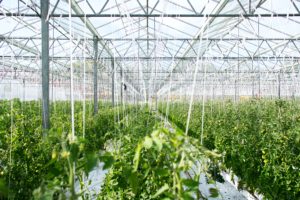Alternative feedstocks and sustainable polymers could hold the key to net-zero, according to a new report published by the University of Oxford.
Electricity, transport and heating account for around 80% of greenhouse gas emissions.
However, reaching net-zero also means dealing with the hard-to-reach 20% of emissions: agriculture, plastics, cement and waste and extracting at least 5% extra from the atmosphere to account for the emissions that we cannot get rid of – together, this is known as the ‘Final 25%.’
To investigate the problems and suggest policy pathways for new innovation, Oxford’s Smith School of Enterprise and the Environment has published its findings from the Final 25% project.
The report considers a host of ways to tackle these emissions, these include:
- Using semi-arid and saline land for plant growth either for product feed-stocks or for greenhouse gas removal
- Using biomass and atmospheric CO2 to create sustainable polymers
- Adopting alternative proteins, including plants, insects and algae, which would free up land to be used for environmental services such as nature-based greenhouse gas removal.

Leading report author, Dr Katherine Collett, says: ‘Mitigating climate change demands more than a shift to renewable electricity generation; investment in harder-to-abate sectors is already required.
‘To reach net-zero, intersections between plastics, proteins and plants, three seemingly unconnected systems, may hold the key. Our reports explore the potential of these systems in detail, pointing the way forward for research, policy development, regulation, and financing options.’
Brian O’Callaghan, lead of Oxford’s Economic Recovery Project and another report author, explains: ‘In the shadow of Covid-19, government investment in green innovation can both help to constrain climate change and seed new industries to stand as powerhouses of economic growth in the long-term.
‘The US invested big in renewable energy research and development during the global financial crisis. That investment has delivered many multiples. Governments could make similar progress in agriculture and industry today.’
Photo by Erwan Hesry












